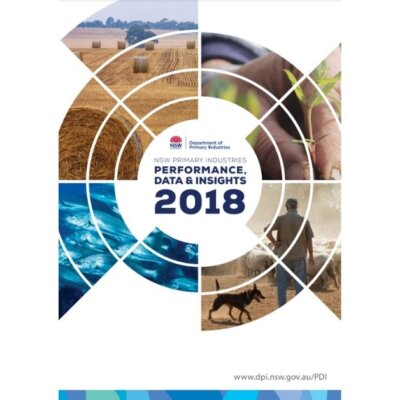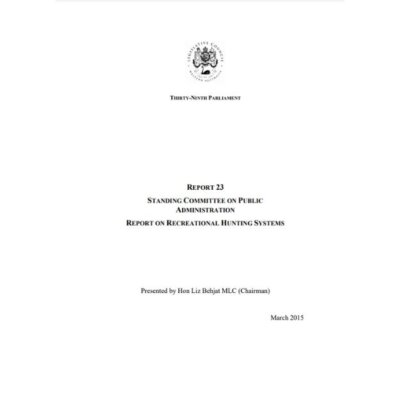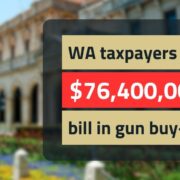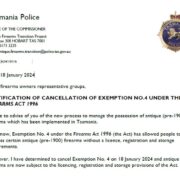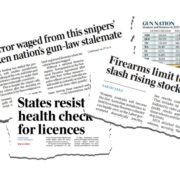An investigation into the use of sound moderators on firearms for game and feral management in New South Wales
DATE: 2011
AUTHOR: Dr. Martin MacCarthy, Prof Martin O’Neill, Dr. Helen Cripps
Executive Summary
This report has been prepared as a summary of the key findings of a study investigating the feasibility of using sounds moderators on firearms in New South Wales (NSW) for the purposes of hunting game and feral animals. The study was commissioned by the Game Council for NSW (hereafter referred to as the ‘Council’) with the intent of identifying any known impediments to the use of sound moderators for hunting purposes. While based largely on secondary data, the investigative panel found no link between sound moderators and their use in petty or organised criminal activity. Further, and based upon a review of other legislative regimes where moderator use is legally permitted, the panel submits that the benefits pertaining to moderator use by the civilian, hunting, law enforcement and military communities points to a need for a more informed debate on legislative change within NSW.
The investigative panel also noted the literal aspects of moderating devices fitted to the fore-end of the barrel and principally designed to reduce the sound signature. A sound moderator does not appear to be a device which of itself can cause harm or injury. This would imply they are similar in principle and no more or less benign than a motor vehicle muffler. In complete contrast however it appears Australian society has elevated the status of sound moderator to a demonic device worthy of fictionalisation and criminalisation. This, compounded by the current perceived regulatory imperative to control (as opposed to relax) all aspects pertaining to firearms and shooting in Australia will see likely opposition to the decriminalisation of sound moderators.
A number of advantages in the use of moderators have emerged from the study; the most obvious one being hearing loss and tinnitus prevention. Studies prove beyond doubt that un-moderated firearm discharge is of a level capable of causing hearing loss/damage to not only the shooter but persons and animals nearby, and that moderators mitigate this hazard to a degree predicated by the calibre, muzzle velocity, type of moderator, proximity and angle from the muzzle. Additional benefits from the use of sound moderators include:
- increased accuracy (in many, but not all instances),
- reduced perceived recoil (by up to 40%),
- reduced stock disturbance,
- facilitation of more efficient animal husbandry, and
- animal welfare outcomes -more humane culling.
On a community level moderated firearms introduce the potential benefit of noise pollution reduction, which is increasingly beneficial in situations of growing urbanisation and concern over how noise influences well-being and lifestyle. The use of moderated firearms has the added benefit of increasing firearm safety, by allowing for more efficient communications in the vicinity of the shooter/s and by increasing the overall length of a firearm, making more difficult unintended sweeping of the firearm over objects, animals and people in the shooters vicinity.
Disadvantages of de-criminalising sound moderators pertain to the possibility criminals would purchase (as opposed to manufacture or illegally import) these devices with a view to committing one of two types of crime; illegal hunting and shooting, and indictable offences such as robbery. Statistics gleaned along with the absence of concern in overseas constituencies that permit the use of moderators suggest the likelihood of this occurring in Australia is similarly low, and their misuse is outweighed by the benefits to a degree consistent with the cultural values of these overseas communities. Whether Australian regulatory authorities apply the same weighting to opposing criteria remains to be seen.
Other disadvantages relate to the cost, inevitably borne by the hunter or shooter, of amounts that in some cases are equal to the firearm itself (i.e. doubling the cost), and also the weight and shift in balance-point further away from the firearm user. This makes for a heavier firearm which in some situations is less pleasant to carry.
The findings point to the advantages outweighing the potential disadvantages, made poignantly clear when considering the distinction between two similar societies; that being Australia and New Zealand. New Zealand does not control sound moderation devices of firearms in any way (except in the collection of GST at the retail level), however in all Australian States their importation, use and possession is illegal. The lack of extensive criminal misuse of moderators in New Zealand is highlighted as one of a number of valid reasons why Australian regulatory entities should re-consider whether the very low level of possible detriment, outweighs the benefits of sound moderation in firearms and whether continuing to deny licensed hunters and shooters these benefits?





